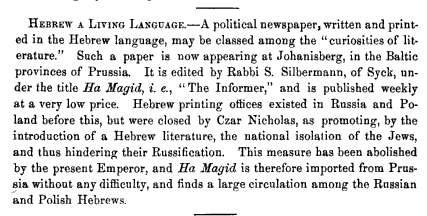
It appears to be translated from a French notice in the March 1857 edition of the Revue Contemporaine, signed by O.S., whom I believe to be Octave Sachot.
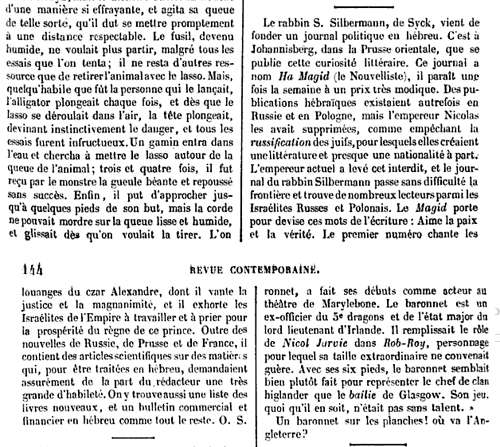
Here's a fuller, and more accurate description by Leib Dukes in English in the February 17, 1860 issue of the Hebrew Review and Magazine for Jewish Literature:

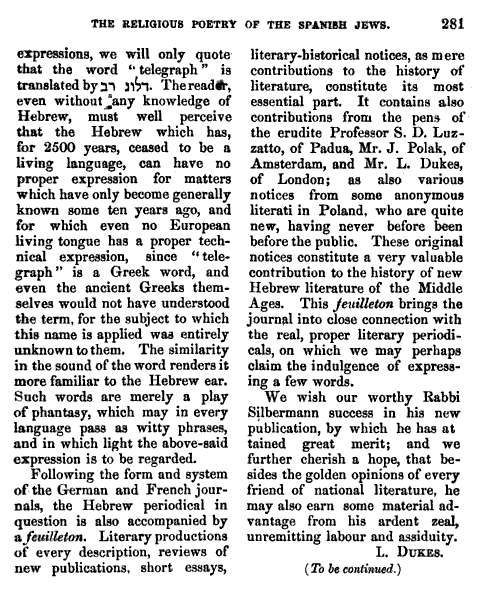
Here is the aforementioned Eliezer Lipmann Silbermann:
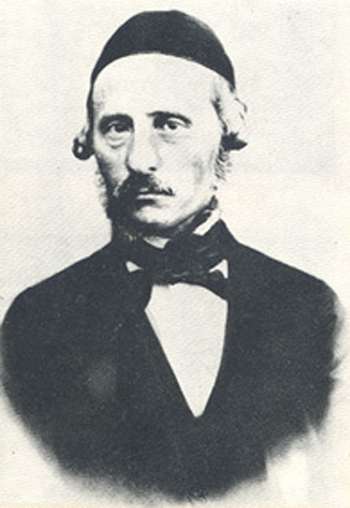
Here is David Gordon, whom he later hired as co-editor (and by most accounts eventually did almost everything at Hamaggid).
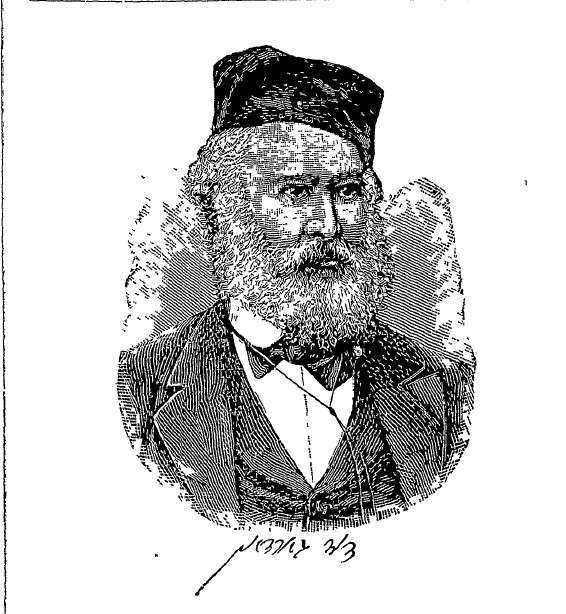

Are you aware of any comparative graph or chart listing the various hebrew newspapers, their first date of publication, their country of orgin, and their political point of view? I confess I get confused between Ha-maggid, Ha-meilitz, Ha-tzfirah, Ha-hed, [and currently] Ha-aretz, Ha-modiah and all the rest.
ReplyDeleteDF
I'll find something to send you. The best way to start being able to tell them apart is by reading them.
ReplyDeleteSince we're talking about Hamaggid (the first one) here, I'll describe it a little bit. It featured news from all over Europe and the Jewish diaspora. Solomon Schecter later wrote about how reading it, as a kid opened up the world for him:
"It was the dream of my childhood when I learned, through the Sepher Haberith and the letters of Hag Vidaver in the Hebrew weekly, Hamaggid, of the existence of a continent on which, according to my simple conceptions, people should stand on their heads, and yet somehow managed to walk erect and free and even move quicker and with a surer pace than we, with all our drill of thousands of years."
(By "Hag Vidaver" he means, "ח"ג ווידאווער" ie, Henry Vidaver, an American rabbi.)
In addition, it featured a literary column called Hatzofeh le-ha-Maggid, which included all kinds of interesting things, from philological research, to unpublished letters by great rabbis and scholars. The first parts of Dikduke Soferim were published in its pages. Eventually it had a Zionist orientation.
This is the newspaper that the Netziv famously read on shabbos, and if his nephew is to be believed he looked forward to it so much that he even said that a shabbos without it just isn't the same. There's a somewhat well known photograph of a rabbi in Yemen who is holding a copy of the paper, which gives an indication of its wide reach.
It should be considered maskilic in orientation, but of the moderate, Orthodox kind that seems to be perpetually rediscovered. It's also the paper where Rabbi Yisrael Salanter wrote a letter to inform them that he is not proud of his university-educated son, after it printed an article about his son, praising him for what it assumed (ingenuously or not) was his permission and satisfaction with his education.
Relatively speaking, it was sort of primitive, at least by Western journalistic standards of the time, which many Jews were already used to. But it's audience included Jews, like young Schechter, who had to be told that America existed. There's more that can be said, but this is at least a start.
Your article about Hebrew language is really informative. I am beginner of learning Hebrew language . I have many useful resources , books, audio CD to learn Hebrew language . I have taken course which is Pimsleur conversational Hebrew method and i have achieved good command in Hebrew language.
ReplyDelete